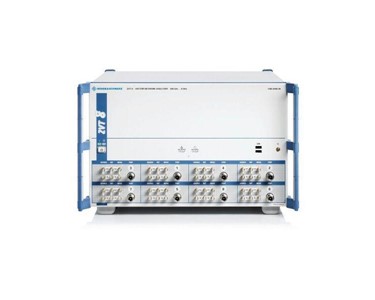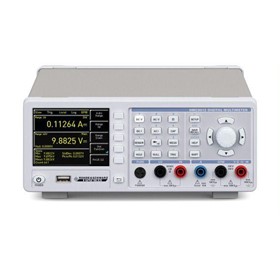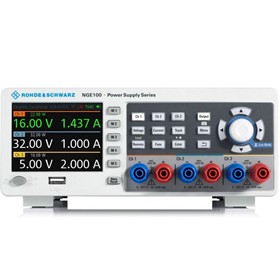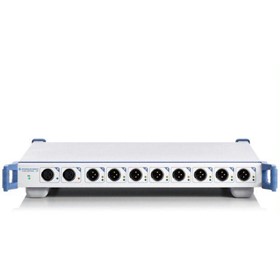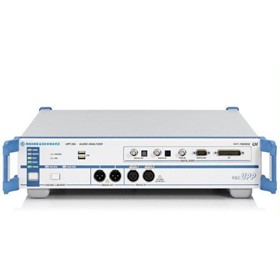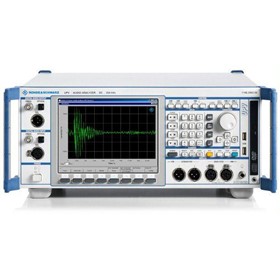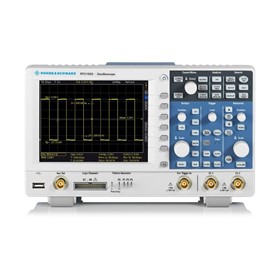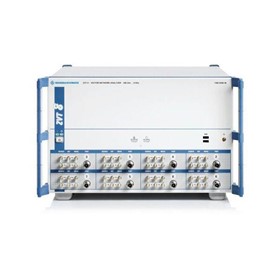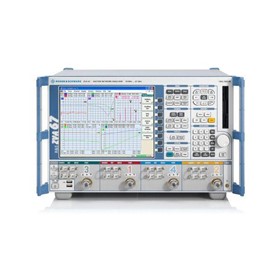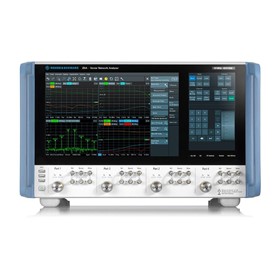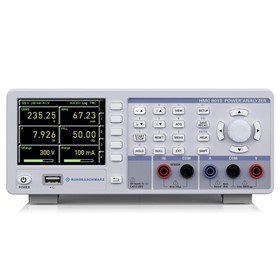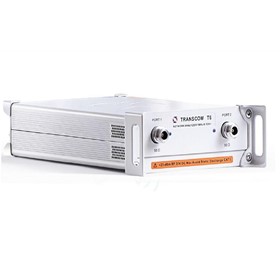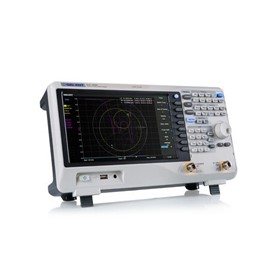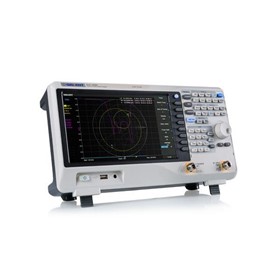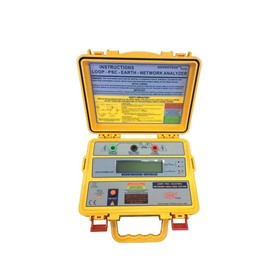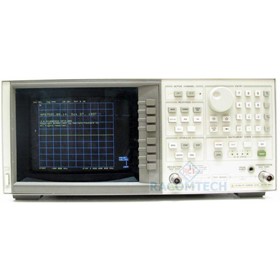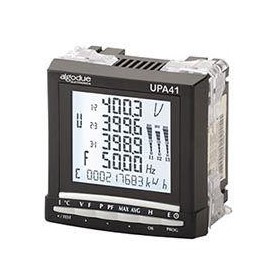The R&S®ZVT features the same comprehensive functionality and range of options as the R&S®ZVA. Plus, it offers a larger number of ports, i.e. generators and receivers. All applications described here for the R&S®ZVA also apply to the R&S®ZVT. The instrument offers excellent network analyzer characteristics and comprehensive measurement capabilities for two- to eight-port applications, irrespective of the number of test ports:
- Extremely fast and accurate measurements on multiport DUTs
- No delay caused by switch matrix control
- Greater stability, reproducibility, and flexibility
- Measurements on balanced DUTs
- Virtual differential measurement mode (sequential stimulation of single-ended ports, standard mode)
- True differential measurement mode:
With eight test ports (four internal sources), up to four true differential signals can be generated and applied to the DUT ports simultaneously
- Unique performance for measurements on amplifiers, mixers, receivers, frontends, etc.:
- Arbitrary frequency and power settings for internal generators and receivers as well as external generators
- Measurement of conversion loss, return loss, leakage, etc., of mixers
- Intermodulation and hot S-parameter measurements on amplifiers
- Intermodulation measurements on mixers by means of a single instrument
- Measurements on double-converting DUTs, with the RF, LO1, and LO2 signals delivered by a single unit
- Pulsed measurements on amplifiers, mixers, frontends, etc. (for details see "Applications" and "Options" tabs)
- Frequency- and power-swept point-in-pulse measurements
- Pulse profile measurements with 12.5 ns resolution on pulses, double pulses and pulse trains with a width smaller than 50 ns; recording time up to 3 ms
- Multichannel receiver
- Direct access to up to 16 channels by means of direct generator/receiver access option
- Parallel, synchronous sampling of channels, e.g. for phase measurements on antenna arrays
- Ideal for use in production
- Parallel measurements on several DUTs increase throughput many times over
- Reduced instrumentation effort
Specifications
| Number of test ports | 2 to 8 ( R&S®ZVT8) 2 to 6 ( R&S®ZVT20) |
|
| Frequency range | 300 kHz to 8 GHz ( R&S®ZVT8) 10 MHz to 20 GHz ( R&S®ZVT20) |
|
| Measurement time per test point | ||
| At 1 MHz IF bandwidth | <3.5 µs | |
| Sampling time per test point | ||
| At 5 MHz IF bandwidth (with R&S®ZVA-K17option) | 430 ns | |
| Measurement time (201 test points) | 4.5 ms | |
| Data transfer time (201 test points) | ||
| Via IEC/IEEE bus | <2.9 ms | |
| Via VX11 over 100 Mbit/s LAN | <1.3 ms | |
| Via RSIB over 100 Mbit/s LAN | <0.7 ms | |
| Switching time | ||
| Between channels | <1 ms | |
| Between instrument setups | <10 ms | |
| Dynamic range at 10 Hz measurement bandwidth, between test ports | 128 dB, typ. 138 dB ( R&S®ZVT8) 120 dB, typ. 133 dB ( R&S®ZVT20) |
|
| Output power at test port | >13 dBm, typ. 15 dBm | |
| Power sweep range | >50 dB, typ. up to 60 dB | |
| IF bandwidth | ||
| Standard | 1 Hz to 1 MHz | |
| With R&S®ZVA-K17option | 5 MHz (10 MHz with restrictions) | |
| With R&S®ZVA-K7option | 10 MHz (30 MHz with restrictions) | |
| Number of channels, diagrams, traces | >100 each | |
| Number of test points per trace | 1 to 60001 | |
| Operating system | Windows XP Embedded | |


